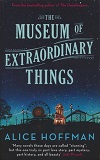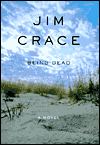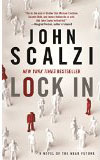
The Museum of Extraordinary Things, by Alice Hoffman
Book Review by SJ Higbee
Have you read this book?
I saw the cover and read the first page, liked what I read, so scooped this offering off the shelves in an impulsive moment. Would I enjoy it?
New York City, 1911. Meet Coralie, circus girl, web-fingered mermaid, the shy, only daughter of Professor Sardie and raised in the bizarre surroundings of his Museum of Extraordinary Things. And meet Eddie Cohen, a handsome young immigrant who has run away from his painful past and his Orthodox family to become a photographer, documenting life on the teeming city streets. One night by the freezing waters of the Hudson River, Coralie stumbles across Eddie, who has become enmeshed in the case of a missing girl, and the fates of these two outcasts collide as they search for their own identities in tumultuous times.
And there you have the slightly tweaked blurb. This story is told in through the viewpoints, both first and third person, of the two main protagonists, Coralie and Eddie.
New York City, 1911. Meet Coralie, circus girl, web-fingered mermaid, the shy, only daughter of Professor Sardie and raised in the bizarre surroundings of his Museum of Extraordinary Things. And meet Eddie Cohen, a handsome young immigrant who has run away from his painful past and his Orthodox family to become a photographer, documenting life on the teeming city streets. One night by the freezing waters of the Hudson River, Coralie stumbles across Eddie, who has become enmeshed in the case of a missing girl, and the fates of these two outcasts collide as they search for their own identities in tumultuous times.
And there you have the slightly tweaked blurb. This story is told in through the viewpoints, both first and third person, of the two main protagonists, Coralie and Eddie.
Hoffman has certainly done her homework and there is plenty of dense description of the early days of New York City as she pulls away from the immediacy of the first person viewpoints and into more a more panoramic, diffuse overview of their lives and the lives of those around them. However, I have to say that I found this switch from first into third person point of view for the same characters rather jarring and would have far preferred the immediacy and punch of the story if it had remained within the heads of the two fascinating characters caught up in this Gothic tale. Much of the initial creepiness and isolation was diluted by packing in quite so much of the historical detail in the third person viewpoint.
Nevertheless this wasn't the deal breaker I at first feared it would be, for the simple reason that the main story running through this book is engrossing and original.
Nevertheless this wasn't the deal breaker I at first feared it would be, for the simple reason that the main story running through this book is engrossing and original.
Coralie and Eddie are both snared by their past, though Coralie's plight is more extreme, being a virtual prisoner and forced to become an exhibit in her father's freak show as a mermaid. The rampant exploitation of anyone disadvantaged or weak is a strong theme throughout the book -- perhaps rather heavy-handedly emphasized, as there is nothing subtle about Hoffman's approach. However, there are some lyrically beautiful passages describing the marshy wilderness and wildlife on the margins of the then city, nowadays completely buried beneath tons of paving and concrete of Manhattan.
The fact remains that I finished reading this book several days ago and it still keeps popping into my head at odd moments. The intensity of the characters and Gothic tone have woven a spell that won't quite leave me alone, despite the book's obvious flaws.
I recommend it as an interesting, unusual read set in New York's early years about two characters dealing with a bizarre situation that even today, would make headlines in all the newspapers.
SJ Higbee
SJ Higbee
|
Click here to buy The Museum of Extraordinary Things, by Alice Hoffman on Amazon
|
The Museum of Extraordinary Things, by Alice Hoffman on Amazon

| More Books You Might Like |
Comment on The Museum of Extraordinary Things, by Alice Hoffman
| Comments on The Museum of Extraordinary Things, by Alice Hoffman |
| There are no comments on this book. |



